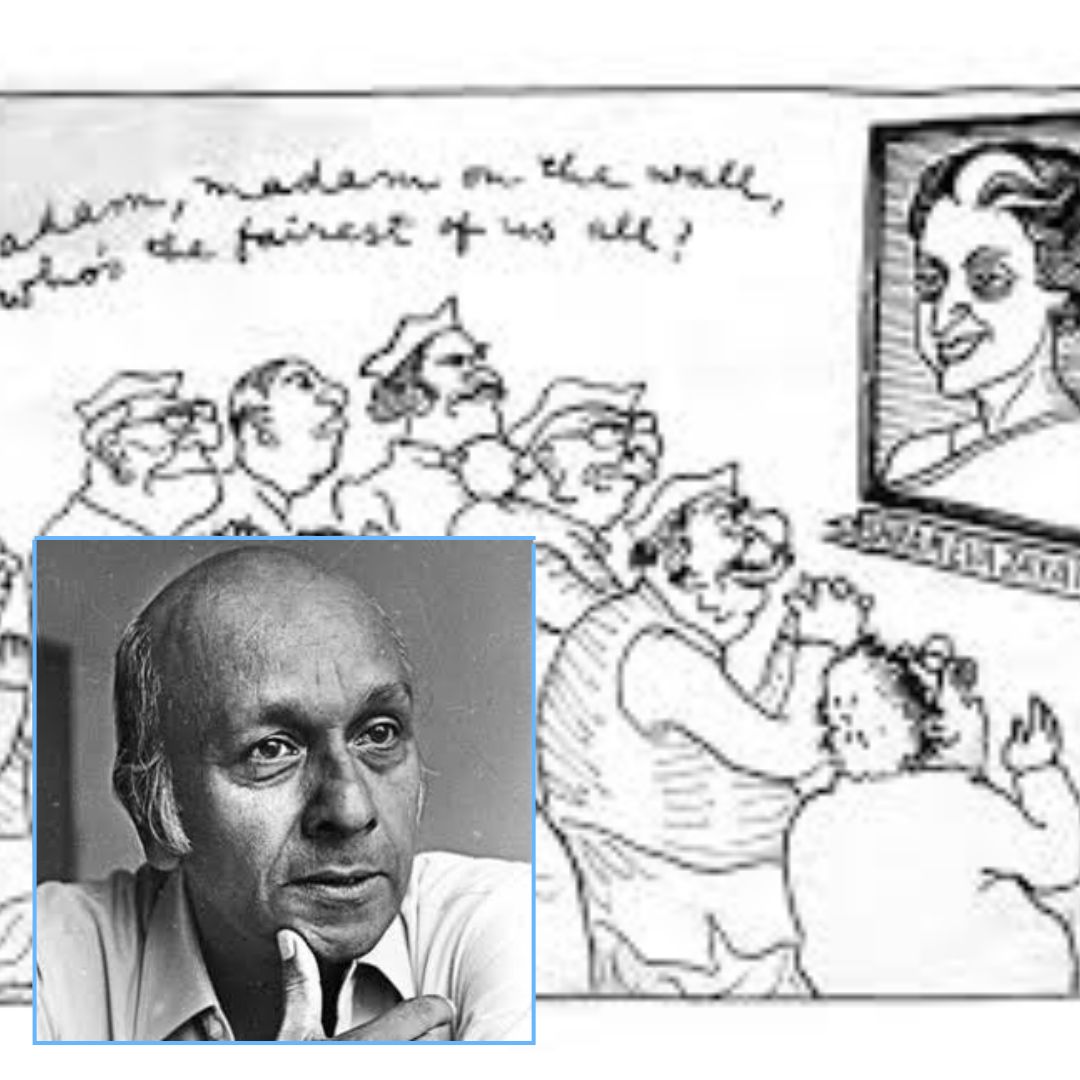
Image Credits: Twitter and CelebrityBorn
Abu Abraham: Remembering Legendary Cartoonist Who Fearlessly Questioned Those In Power
Writer: Laxmi Mohan Kumar
She is an aspiring journalist in the process of learning and unlearning many things. Always up for discussions on everything from popular culture to politics.
Kerala, 1 Dec 2022 5:09 AM GMT
Editor : Jayali Wavhal |
She writes about gender issues, human interest, and environment.
Creatives : Laxmi Mohan Kumar
She is an aspiring journalist in the process of learning and unlearning many things. Always up for discussions on everything from popular culture to politics.
One of the most celebrated cartoonists from India, Abu Abraham is known to have thrown merciless attacks on corruption and the corrupted through catchy punchlines. On his death anniversary, The Logical Indian revisits his legacy.
Cartoons are one element of the newspaper that every reader looks out for as it packs up the most important event of the day within a few words and a punchline. They resonate with the people due to their many elements of humour, sarcasm, and information. Due to this same reason, cartoonists have always held an important position as statement-makers in the field of journalism.
One such cartoonist whose cartoons have graced major publications of his times, including The Bombay Chronicle, Blitz, Tribune, The Observer, The Guardian, and The Indian Express, is Attupurathu Mathew Abraham. Popularly known by his pen name Abu Abraham, the cartoonist was known for his fearless criticisms that were penned down through his creative works. He had the capacity to bring out a laugh within the audience while at the same time making them think. On his death anniversary, The Logical Indian revisits the legendary works and words of cartoonist Abu Abraham.
Cartoons Across Nations
Born in the humble village of Mavelikara in Kerala, Abu was the only child of A.M. Mathew and Kantamma. His interest in drawing cartoons began at the early age of three, and he took it along with him regardless of the different paths he explored in his lifetime. So while Abu's academics would reflect on his knowledge of French, Mathematics, and the English language, his career choices conveyed his true calling.
Soon after graduating college in 1945, he shifted to Bombay and began working as a journalist for The Bombay Chronicle. Around the same time, he also contributed as a freelancer to The Bombay Sentinel, Blitz, and Bharat. His works garnered attention both within national and international space. As a result, he was encouraged to move to London to exhibit his talents on a larger platform. Fred Joss from the London Star was among those who encouraged the artist to make the leap, and soon enough, Abu's cartoons made their way to the international publications of Punch Magazine, Daily Sketch, Everybody's London Opinion, Eastern World, and so on.
While at that time, it was no cakewalk for an Indian to adjust to British culture, Abu blended well with the crowd and grew popular for his incisive political cartoons. Abu, under the pen name 'Abraham,' was also approached by David Astor, editor of one of the world's oldest Sunday newspapers, The Observer. Astor had penned a personal letter asking for Abu and offering him a permanent post as the newspaper's first-ever political cartoonist.
As an artistic journalist, he was often seen taking news to the people through political cartoons and reportage drawings from around the world. Some of his well-known and celebrated works include the 1692 Che Guvera drawing while he was in Cuba, and the 1968 Verdicts on Vietnam, a collection of cartoons about the Vietnam War.
Loud Voices During Emergency
After returning to India, he started working as a political cartoonist for Indian Express. He was quite an active figure in the political arena and was nominated as a member of the Rajya Sabha. In 1975, when Indira Gandhi declared the Emergency and suspended freedom of the press, Abu ensured that the press did not remain silenced. He fell out with her and published a book named Games of the Emergency. The book was a compilation of political articles and cartoons that exposed the real side of the Emergency.
According to Wikipedia, the artist was often described as "the conscience of the Left and the pea under the princess's mattress". He was highly vocal with his criticisms against corruption and made the ruling government and other parties uncomfortable with his drawings. Years of challenging the government and state, he released multiple cartoons, books, and articles that provided a differential insight into the mass-narrated history of the country. On December 1, 2002, Abu took his last breath in his hometown and was cremated with full state honours for the legacy he left behind.
 All section
All section














